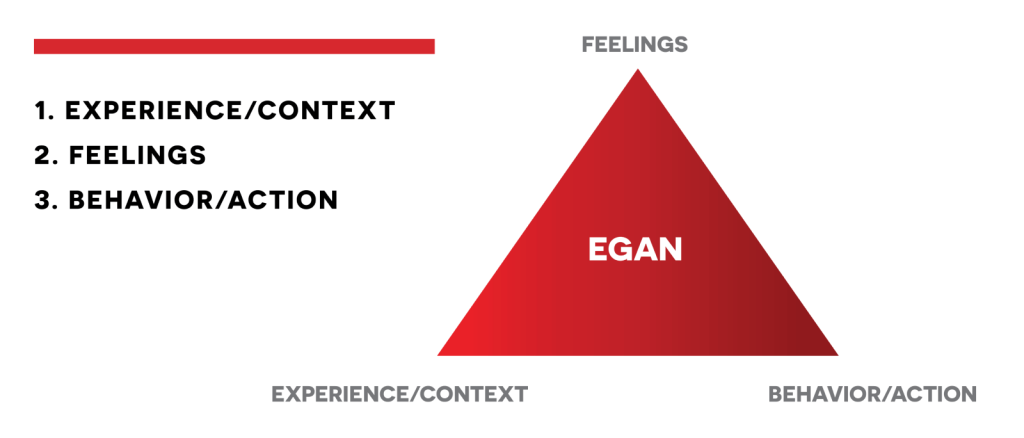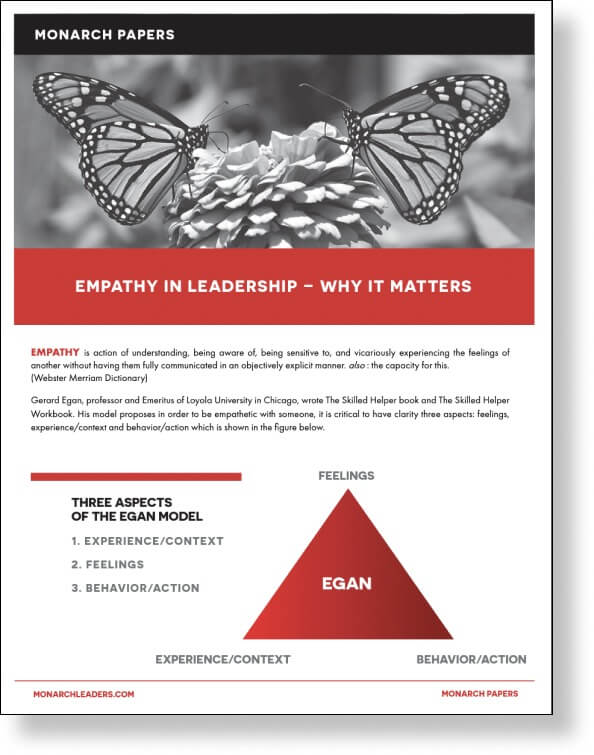What role does empathy play in your life? This is a very relevant question during these times. Recently, I have heard people speaking about empathy, or lack of it, quite a bit; trying to explain the uncertainty and unrest of these challenging times.
Let’s start by defining what empathy means. From its origin, empathy was used to explain the objective and deep (internal) understanding of the other person’s feelings, ideas and intellectual points of view. Empathy is also a skill that can be learned.
The Three Aspects of the EGAN Model
A technique proposed by Gerard Egan in his book, The Skilled Helper, states that in order for empathy to take place, there needs to be an equilateral triangle between:
- Feelings
- Behavior/action
- Experience/context
If the triangle is unbalanced from any side, empathy is unlikely to happen.
Empathy is an ability that allows us to put ourselves in another person’s shoes. This connection can be done if there is clarity of the feelings, behavior/action and experience/context of what the other person is going through.

An Effective Tool to Enable Empathy
The question now is, when an argument occurs, do we put ourselves in the other person’s shoes? An effective tool to enable empathy is to try and avoid making assumptions about what the other person is thinking or feeling. Instead, you can ask to understand a bit more of their context, behavior and feelings rather than making assumptions.
If there is a verb that describes empathy, it’s “accompany.” The essence of empathy is the belief that every person has the capacity to solve their own problems. In other words, it is accompanying the person wherever he or she decides to go with no predetermined route or course of action. This is what empathy is about.
What is the Challenge With Empathy?
One of the challenges we have with empathy is the ability to be empathic with the people that are closest to us where there is love/affection or animosity/resentment. In my experience, it is very difficult to disengage from those feelings because they do not give us the space to see clearly. This prevents the connection and therefore, makes it is easier to form assumptions.
Think about the last time you had an argument with someone.
- Did you trust the other person’s ability to solve the issue?
- Were you able to put yourself in the other person’s shoes?
- Did you make assumptions?
The answer to these questions may help you raise your awareness about empathy in the future.
Download the Monarch Paper below to learn more about what role empathy can play in your life.

